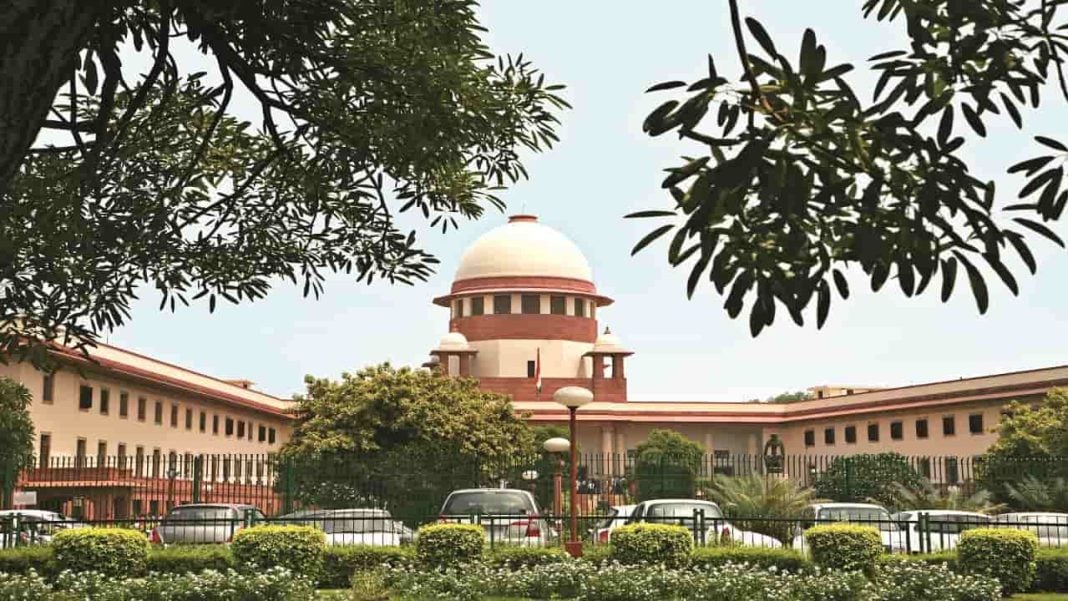The Supreme Court will hear on April 10, a petition filed by the Amaravati Parirakshana Samiti, challenging the time-bound order passed by the Andhra Pradesh High Court, which directed the state to construct and develop Amravati Capital region within six months.
The Special Leave Petition sought an appropriate direction to the state under Article 257(1) of the Constitution not to indulge in wastage of public exchequer’s money spent in Amaravati to the tune of Rs 52,837 crore.
It has also been sought to complete all the construction carried out for the purpose of providing housing to the judges of the High Court, All India Service officers and NGO employees in compliance with the High Court’s order.
The Bench of Justice K.M. Joseph and Justice B.V. Nagarathna adjourned the matter.
Former Attorney General of India K.K. Venugopal, appearing on behalf of the state, submitted that the entire act which was challenged in the present matter, has been withdrawn.
Therefore, there was no act to be dealt with. However, even though there was an academic question to proceed on the basis that it may pass the law again and if the law was passed, it will be void… it was clearly outside the jurisdiction of the court. The act was not in existence.
He further emphasised on taking up a stay petition in regard to the petition because the hands of the Government were tight.
Earlier, the Apex Court had stayed the March 3 order of Andhra Pradesh High Court and observed that the High Court cannot be a town planner or an engineer to direct the government to build the capital in six months thus, the High Court overstepped its limit in the matter.
A bunch of writ petitions were filed before the Andhra Pradesh High Court challenging the Andhra Pradesh Decentralisation and Inclusive Development of All Regions Act, 2020 and the Andhra Pradesh Capital Region Development (Repeal) Act, 2020.
The issue had arisen when the landowners sacrificed their livelihood by surrendering their agricultural land in the land pooling scheme for development of capital city and capital region with the government who failed to undertake the development and to handover developed plots.
In 2020, the Andhra Pradesh Government enacted two separate laws one, Andhra Pradesh Capital Region Development (Repeal) Act, which was aimed at abolishing the authority created by the previous TDP government in 2015 to develop Amravati as the state capital and the other Andhra Pradesh Decentralisation and Inclusive Development of All Regions Act, 2020.
What was Andhra Pradesh Decentralisation and Inclusive Development of All Regions Act, 2020?
The main objective behind proposing the said bill was to establish three capitals at different places in the state aiming decentralisation namely Visakhapatnam, Amaravati, and Kurnool, which will serve as executive, legislative and judicial capitals respectively.
When Chief Minister Y. S. Jaganmohan Reddy felt that the previous state government led by Chandrababu Naidu did not take Siva Rama Krishnan committee into consideration about choosing the capital of Andhra Pradesh and constructing a mega city would increase the burden, the government appointed two expert committees G.N. Rao committee and Boston Consulting group Committee (BCG).
The said committees suggested for a decentralised development by transferring the powers of governance to the various parts of the state by choosing Visakhapatnam as executive, Amaravati as Legislative and Kurnool as Judicial Capitals with an aim of faster pace development.
But this caused consternation among the farmers as the bill was against the agreements to the farmers who gave 33,000 acres of agricultural land to the government for development.
The bill repealed.
In the month of November 2021, both the bills were repealed by the Andhra Pradesh government amid protest by the people.
The protests continued for almost two years over the said bill, but the Andhra Pradesh Government had assured that they will bring a comprehensive, complete and better decentralised bill.
To intensify agitation, the Amaravati farmers had launched a 45-day maha padayatra ‘Nyayasthanam to Devasthanam’ (High Court to Temple) from Amaravati to Tirumala with a demand to have Amravati as sole capital of the state.
Over hundreds of petitions were filed before the Andhra Pradesh government over the said two bills.
Around 34,000 farmer families given up their land under land pooling scheme which is a statutory scheme under Andhra Pradesh Capital Region Development Authority Act for halting development in capital region which was headed by the erstwhile government and about 15,000 cr were spent on development and 32,000 cr on grounding work.
However, after the current state government’s new bills, the farmers were left with no sustainable means of livelihood which prompted them to move High Court.
The High court observed that Rs 15,000 crore was spent on development activities and for the grounding works worth Rs 32,000 crore. Sudden stoppage of developmental activities due to an alleged financial crisis or otherwise was impermissible and thereby, the State and APCRDA were held responsible for the total amount spent on the development activities as on date to the public in general under the Doctrine of Public Trust, it added.
After considering all the facts and circumstances, the High Court held that the State government had no competence to come up with the two legislations and issued following interim directions –
- That the developed plots be handed over to the petitioners within three months and asked the authorities to pay Rs 50,000 to each petitioner.
- The State and Andhra Pradesh Capital Region Development Authority (APCRDA) were directed to discharge their duties in accordance with Land Pooling Rules, 2015
- The process of development in Amravati Capital City to be completed within one month
- The developed reconstituted plots in Amravati Capital region to be handed over within three months.



